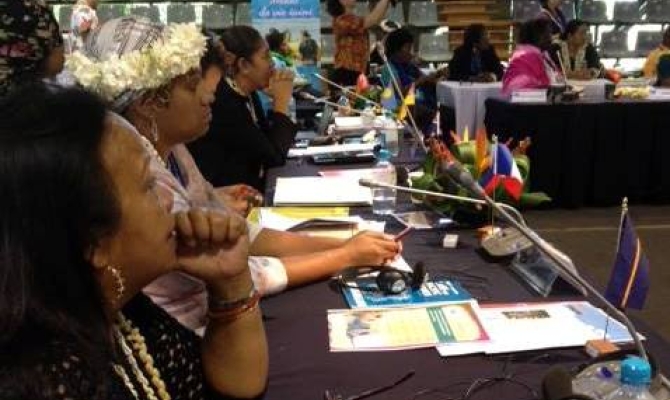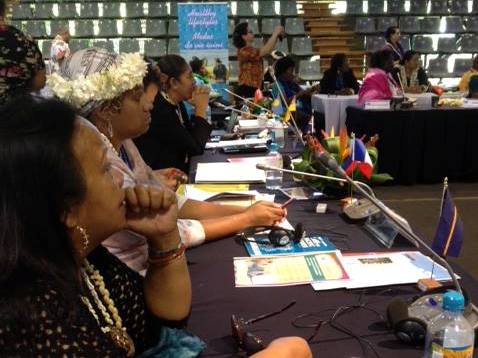
Climate Change Resilience
The gathering of Pacific Women was the perfect backdrop for the launch of the first, ever, Gender and Climate Change toolkits for the Pacific.
On October 23 in Rarotonga, Cook Islands, overwhelming support for the toolkit was received.
"Having practical tools to assist with ensuring gender is considered in the implementation of our projects in significant," said Ms. Ana Tiraa-Passfield, the Director of Climate Change of the Office of the Prime Minister, Cook Islands.
In the Cook Islands, gender had been mainstreamed into a number of key policies and planning documents. The government has developed the Cook Islands National Policy on Gender Equality and Women's Empowerment and its accompanying Strategic Plan of Action (2011–2016).
"We, from the climate change community are here to strengthen partnerships with women's organisations that can support us to better integrate gender in our work."
The toolkits aim to facilitate gender analysis work across sectors, support gender stock takes, and encourage collection of sex-disaggregated data across climate change projects and programmes.
They are designed to help incorporate a gender perspective in development projects that focus on climate change and renewable energy in the Pacific.
Delegates at the closing of the 12th Triennial Conference of Pacific Women
Photo courtesy of PACMAS Facebook Page
At the launch, participants discussed issues that affect women and men in climate change and access to energy.
Daisy Alik-Momotaro, Secretary of the Ministry of Internal Affairs of the Marshall Islands said, 'Climate change is a priority issue in our small island states. While I note that it is under the "emerging issues" agenda, I reiterate the point made by Federated States of Micronesia, that this should be considered as a priority issue at this conference."
The toolkits have been developed through partnerships of SPC, SPREP, the United Nations Development Programme (UNDP), UN Women and Deutsche Gesellschaft fur Internationale Zusammenarbeit (GIZ).
Countries have been asked to review the toolkits over a four week period before being finalised, for more information please visit the Pacific Climate Change Toolkit.